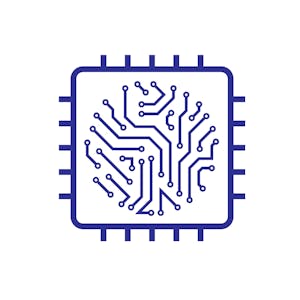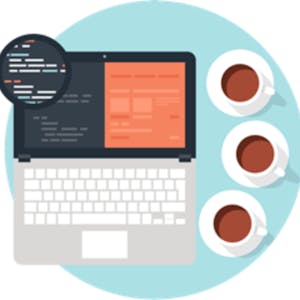Embedded Systems using C
About this Course
Embark on a comprehensive journey into Embedded Systems with this course. Module 1, \"Introduction to Embedded Systems,\" lays the foundation by exploring principles, architectures, and essential devices. In Module 2, \"Programming Fundamentals in C,\" participants master C programming essentials, including operators, storage classes, and flow control structures. Transitioning to Module 3, \"Advanced Concepts in C for Embedded Systems,\" participants delve into functions, arrays, pointers, and string manipulation techniques. By the course\'s conclusion, participants emerge equipped with the knowledge and skills necessary for confident navigation and programming in C for embedded systems development. Learning Outcomes: Upon completing this course, participants will: 1) Gain a solid understanding of Embedded Systems principles, architectures, and essential devices. 2) Master C programming essentials, including operators, storage classes, and flow control structures. 3) Dive deep into advanced C concepts crucial for embedded systems, such as functions, arrays, pointers, and string manipulation techniques. 4) Acquire practical skills through hands-on projects and exercises, enhancing their ability to develop embedded systems applications. 5) Develop confidence in their ability to design, program, and troubleshoot embedded systems using C. Target Learners: 1) Electrical Engineering or Computer Science Students: Those pursuing degrees in electrical engineering or computer science, particularly with an interest in hardware-software integration and low-level programming. 2) Embedded Systems Professionals: Engineers or professionals already working in the field of embedded systems who want to deepen their understanding of C programming for embedded applications and enhance their skill set. Pre-requisites: 1) Basic Programming Knowledge: Familiarity with programming concepts such as variables, loops, functions, and data structures. 2) Understanding of C Programming Language: Proficiency in the C programming language including syntax, data types, pointers, memory management, and basic file operations. 3) Fundamental Electronics Knowledge: Basic understanding of digital electronics, microcontrollers, and input/output (I/O) interfacing concepts. 4) Computer Architecture Basics: Knowledge of computer architecture fundamentals such as CPU, memory, input/output devices, and the concept of interrupts.Created by: EDUCBA

Related Online Courses
This course is aimed at anyone interested in applying machine learning techniques to scientific problems. In this course, we\'ll learn about the complete machine learning pipeline, from reading in,... more
By the end of this project, you will learn how to use Canva to create a simple 3D effect for a customised cover image to enhance your Linkedin profile. Canva is a graphic design platform, used to... more
AI analyzes content, suggests visuals, and recommends layouts, elevating your presentations to the next level. It\'s like having a design assistant at your fingertips. This one-hour course is for... more
The connections between the disparate locations, myths, and traditions found in nineteenth-century American literature. The historical turning points involved in the production of an American... more
Parallel, concurrent, and distributed programming underlies software in multiple domains, ranging from biomedical research to financial services. This specialization is intended for anyone with a... more








